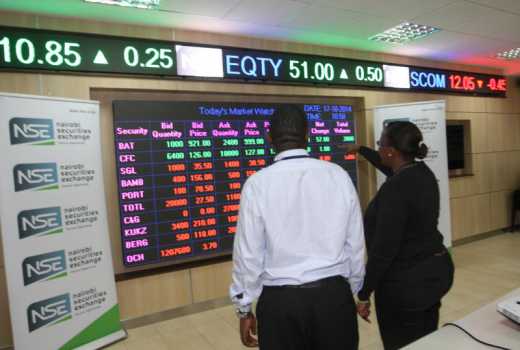×
The Standard e-Paper
Join Thousands Daily

The Nairobi Securities Exchange (NSE) is taking too long to start trading in derivatives - financial instruments whose value depends on the price of another asset. Derivatives are useful in reducing the risk exposure associated with trading in securities.
They offer investors additional investment opportunities. For instance, instead of buying the asset, the investor can just buy the right to buy that asset.